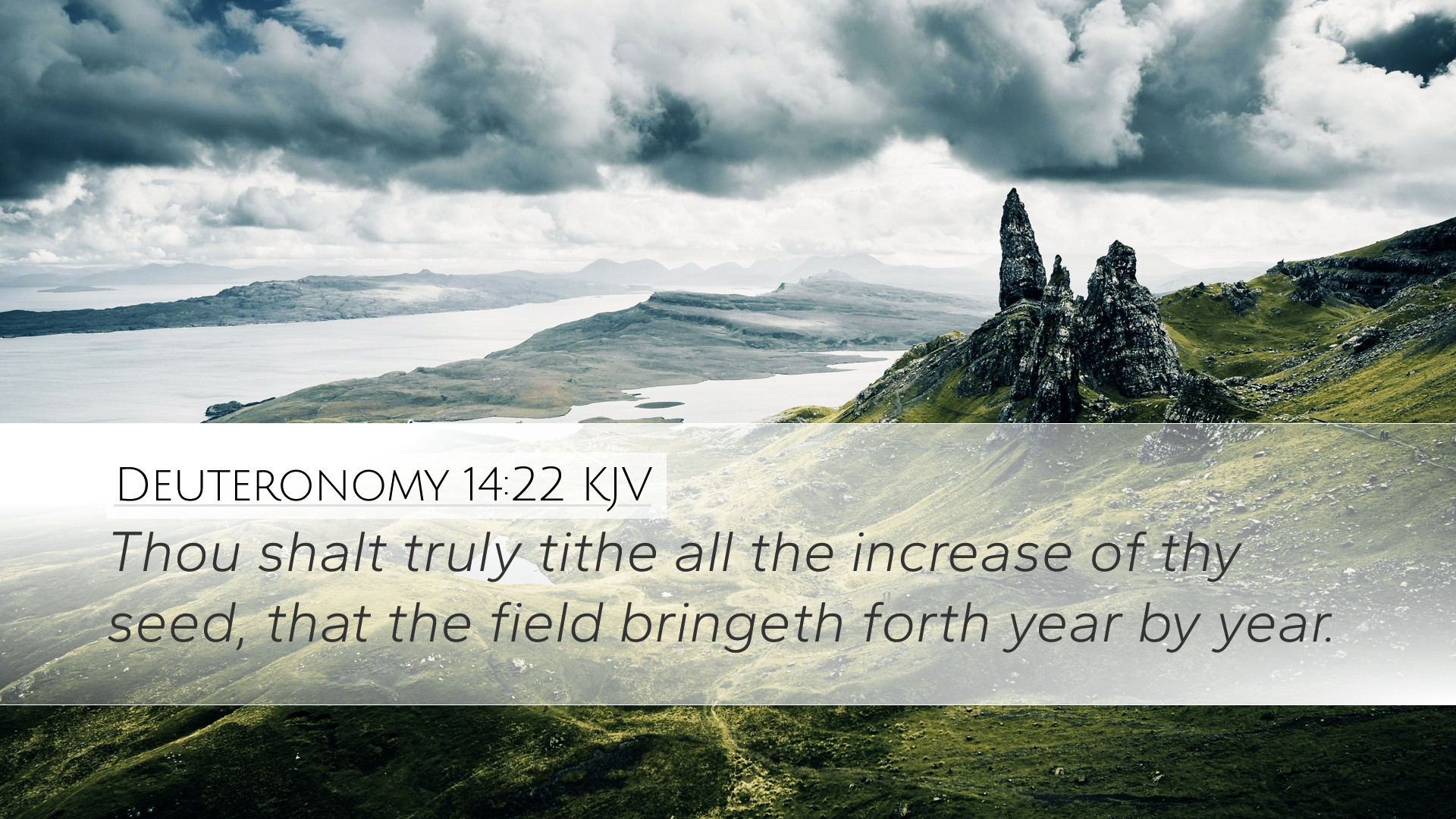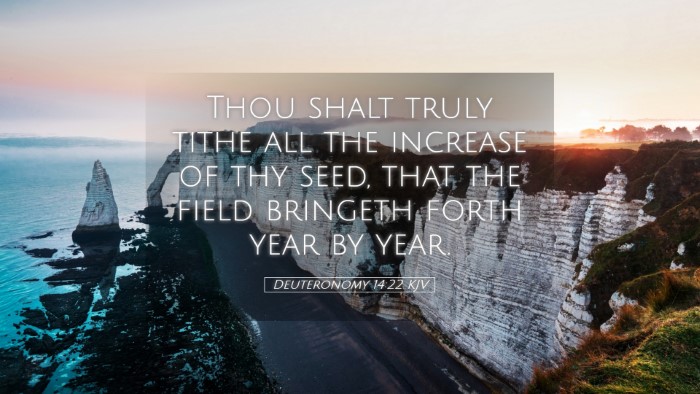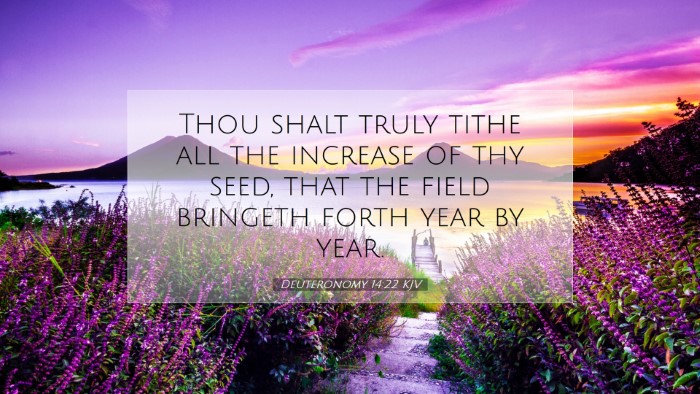Bible Commentary on Deuteronomy 14:22
Verse: Deuteronomy 14:22 - "You shall truly tithe all the increase of your grain that the field produces year by year."
Introduction
The verse in Deuteronomy 14:22 addresses the practice of tithing, particularly the requirement for the Israelites to set aside a tenth of their annual produce as an offering to God. This command, rooted in the agrarian economy of ancient Israel, continues to be significant for understanding biblical principles about stewardship, gratitude, and community support.
Theological Implications of Tithing
Tithing is not merely a practice of financial obligation; it is deeply embedded in the theology of giving and reliance on God’s provision. According to the insights of Matthew Henry, tithing reflects a recognition of God as the source of all blessings. He emphasizes that the command suggests a proportionate response to God's provision in our lives.
- Recognition of God's Blessings: Tithing is a way for believers to acknowledge that everything they have comes from God. Accepting that our increase is a gift promotes humility and gratitude.
- Building Community: The tithe supports the Levites (Deu 14:28-29), emphasizing the collective aspect of worship and the responsibility to care for those serving in ministry, fostering unity among God's people.
Insights from Albert Barnes
Barnes sheds additional light on the practical aspects of tithing, regarding it as both an act of faith and a mechanism for community welfare. He notes:
- Regular Accountability: Tithing imposes a discipline on individuals and communities, encouraging them to regularly set aside resources for God's work, instilling a rhythm of giving which helps nurture faith.
- Covenant Relationship: The act of tithing represents a covenantal relationship—a reminder that obedience to God’s commandments invites His blessings upon the people.
Commentary by Adam Clarke
Adam Clarke provides a detailed contextual analysis of the verse, relating it to Israel’s broader covenantal framework. He notes that:
- Historical Context: During the wandering years and the eventual settling in Canaan, this command served as a regulatory measure to ensure that the people would remain dedicated to God amidst diverse influences.
- Spiritual Relevance: Clarke highlights the spiritual implications of tithing, suggesting that it nurtures a deeper relationship with God, fostering trust and reliance on His care for their daily needs.
Practicing Tithing Today
Both Henry and Barnes emphasize that the principle behind tithing transcends the Old Testament law. The New Testament upholds the importance of generosity and sacrificial giving among Christians. Whether tithing is understood as a fixed percentage or as a heart posture, the underlying theme remains one of giving joyfully and recognizing God’s ultimate ownership of our possessions.
Application for Modern Believers
- Encouragement for Spiritual Growth: Pastors and spiritual leaders can encourage believers to view tithing as an act of faith that encourages spiritual growth and a heart aligned with God’s purposes.
- Community Impact: Tithing can lead to substantial impacts within church ministries and community outreach, providing for those in need and as an essential part of church mission and ministry budgets.
- Awareness of Prosperity: It becomes vital for congregations to understand tithing in the context of economic disparities, approaching the teaching of giving with wisdom and grace.
Conclusion
Deuteronomy 14:22 is more than a commandment regarding material wealth; it symbolizes a profound aspect of covenant life with God, encouraging believers to promise fidelity through their resources. By studying the insights from Henry, Barnes, and Clarke, we see that tithing signifies faith, community support, and a commitment to express gratitude in tangible ways. The practice continues to bear significant relevance in the lives of believers today, reminding us of God’s providence and the call to joyful generosity.


